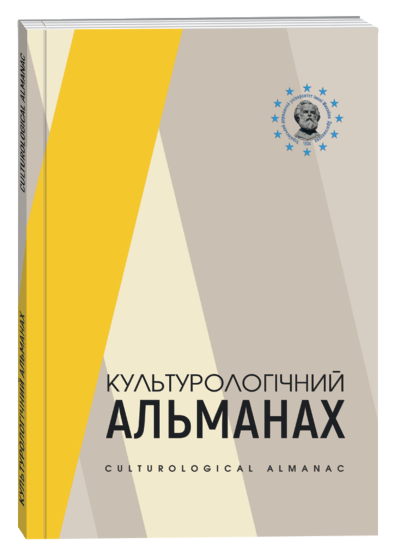ACTIVITIES OF SMALL CHURCHES IN THE CONDITIONS OF THE STRENGTHENING OF AUTHORITARIAN TENDENCIES IN THE POLITICAL LIFE OF HORTHY’S HUNGARY IN THE 40’S OF THE 20’TH CENTURY
DOI:
https://doi.org/10.31392/cult.alm.2022.4.7Keywords:
Hungary, policy, church, state, relationshipAbstract
The article is devoted to the study the issue of the formation of state policy regarding the activities of small churches in Hungary in the 40’s of the 20’th century. In the article, the author analyzes the legal status of small churches in the 40’s of Horthy’s Hungary, where during the last decades, state-church relations was built in the form of a coordination system of faiths. In the article, the author emphasizes that, according to the division of religions into “accepted by law”, “recognized legal” and “unrecognized”, the “unrecognized” by the state, religious communities (small churches), which were unjustifiably called “sects” during the 40s, suffered not only from open harassment by state law enforcement agencies, but also from limiting or completely banning their activities. The author highlights the contents of the orders of the Ministry of Internal Affairs of Hungary regarding the prevention of the activities of banned sects, the materials of investigative bodies of the gendarmerie, the decisions of military tribunals and concludes that the Hungarian government did not intend to change its discriminatory policy to a more liberal one regarding the activities of small churches. The author focuses attention on the problematic of the sectarian issue, which should be considered as an important part of the state political process and geopolitical interests. In the article, the author notes that the legal ban on the activity of small churches in Hungary meant the expansion of discriminatory processes, including direct force actions directed against representatives of the specified religious denominations and their communities. The author emphasizes that from the point of view of an authoritarian state, the very existence and activity of small groups of a religious nature, which generated certain interpretations of theological issues, posed a threat to both the political regime and traditional religions and churches. In the article, the author underlined that numerous anti-sectarian decrees and actions show a certain political and ideological influence of Germany and an unequivocal manifestation of the strengthening of authoritarian tendencies in the regime of M. Horthy. In order to solve scientific problems related to study the issue of the formation the state policy regarding the activities of small churches in Hungary in the 40’s of the 20’th century, the article deals with Hungarian-language scientific papers on this topic.
References
Magyarországi rendeletek tára, 1939. (1940). Budapest : Kiadja A Magyar Királyi Belügyminisztérium. 2616 old.
A magyar protestantizmus 1918–1948. (1987). Szerk. L. F. Lendvai. Budapest : Kossuth Könyvkiadó. 380 old.
Bajor Nagy E. (1965). Befelé nézők. Szabad Föld. évf. XXI. 51 sz. Old. 8.
(1988). Emléklapok 4. Egyháztörténeti és hitépítő írások / M. Balog et al. Budapest : Magyarországi Baptista Egyház. 95 old.
(1986). Magyarország a XX. században. Második kiadás / M. Balog et al. Budapest : Kossuth Könyvkiadó. 534 old.
Beránné Nemes É., Hollós E. (1977). Megfigyelés alatt <…> Dokumentumok a horthysta titkosrendőrség működéséből (1920–1944). Budapest : Akadémiai Kiadó. 487 old.
Carr J.J. (1993). Megtört kereszt, Hitler és az okkultizmus. A nácizmus és a New Age kapcsolata. Budapest : Kiadja a Hit Gyülekezete. 287 old.
Gál F. (1942). A szekták mozgatóerői. Magyar Kultúra. évf. XXIX. 24 sz. Old. 185–187.
Hajós J. (1941). Egy eretnekség sorsa és a mai helyzet. Katolikus Ösvény. évf. VII. 8 sz. Old. 3.
Kardos L., Szigeti J. (1988). Boldog emberek közössége. A magyarországi nazarénusok. Budapest : Magvető Könyvkiadó. 631 old.
Lányi K. (1948). Szekták a demokráciában. Budapest : Valóság Kiadó. 45 old.
Nyisztor Z. (1926). Szekták Magyarországon. Budapest : Szent István Társulat. 89 old.
Salacz G. (1975). A magyar katolikus egyház a szomszédos államok alatt. München : Aurora Könyvek. 148 old.
Somogyi I. (1941). A baptisták. A baptista vallásfelekezet vázlatos ismertetése. Budapest : A “Magvető” könyvkereskedés bizománya. 18 old.
Somogyi I. (1947). A vallásszabadság és a baptisták rövid történelmi és közjogi megvilágításban. Budapest. 178 old.
Szakály S. (1989). Egy közbiztonsági testület létrehozása a 19–20. század fordulóján. (A Magyar Királyi Csendőrség). Rendi Társadalom-Polgári Társadalom 3. Társadalmi konfliktusok. Salgótarján. Old. 325–330.
Szigeti J. (1987.) A kisebb magyarországi egyházak. A könyvben: A magyar protestantizmus 1918–1948. Szerk. L. F. Lendvai. Budapest : Kossuth Könyvkiadó. 380 old.








